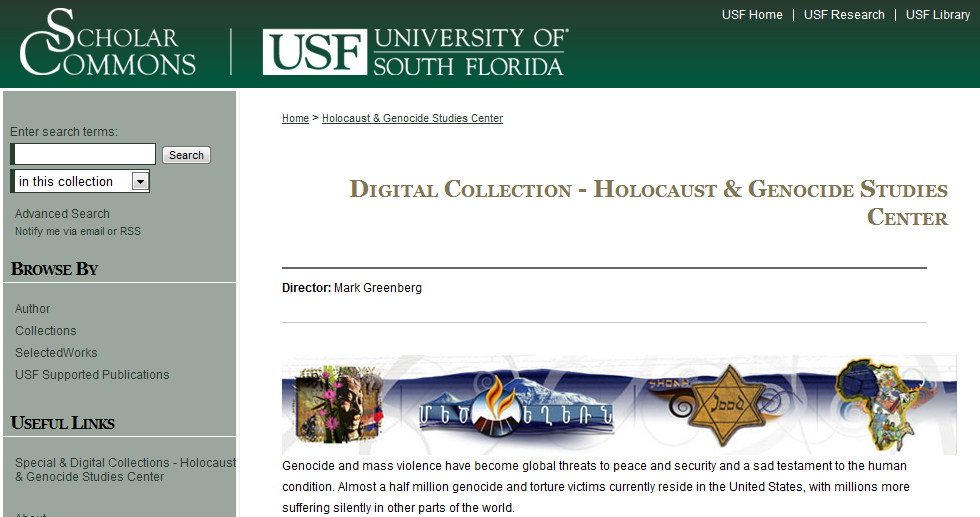One of the things we like to ask librarians is “what is your library’s signature collection and can it be shown in digital form?” When Bill Garrison, Dean of Libraries at the University of South Florida, arrived at USF five years ago he asked the same question. Bill wanted to make the library indispensable to faculty research so he started an ongoing study group with his management team to figure out how to support research efforts by faculty. After several months of studying faculty research, including combing through as many faculty CVs as possible, they distilled specific research themes, including a wide ranging interest in genocide and the holocaust studies.
The library then started to actively build a collection that could support faculty research and teaching in genocide studies, the Holocaust & Genocide Studies Center. The growing collection receives raves from faculty and administration because it serves their interests. Faculty are involved with the project and help to build it and promote it. The collection is also benefiting the library, which received a major grant to expand that collection.
Here’s the library’s description of that collection:
Recognizing an important opportunity to unify the University of South Florida’s wide-ranging genocide studies initiatives and to contribute to global education and action, the USF Libraries have created a global interdisciplinary center to understand and prevent genocide, with particular emphasis on the Holocaust, Armenia, and East Africa.
The USF Libraries Holocaust and Genocide Studies Center will become an internationally recognized center for the quality of its collections, research, teaching, and community engagement. To achieve this goal, the Center’s mission is to cross international boundaries to engage information specialists, scholars, educators, students, analysts, and activists in a centralized, interdisciplinary, collaborative, and synergistic approach to genocide education, mental health and public policy, and prevention.
Collections like these further a library’s mission to serve the needs of the institution, since they are aligned with the research and teaching needs of faculty. USF has used ScholarCommons to further that mission by providing a place to gather, describe and make available this research to their school’s internal and external communities.

Holocaust & Genocide Studies Center – University of South Florida (USF)






